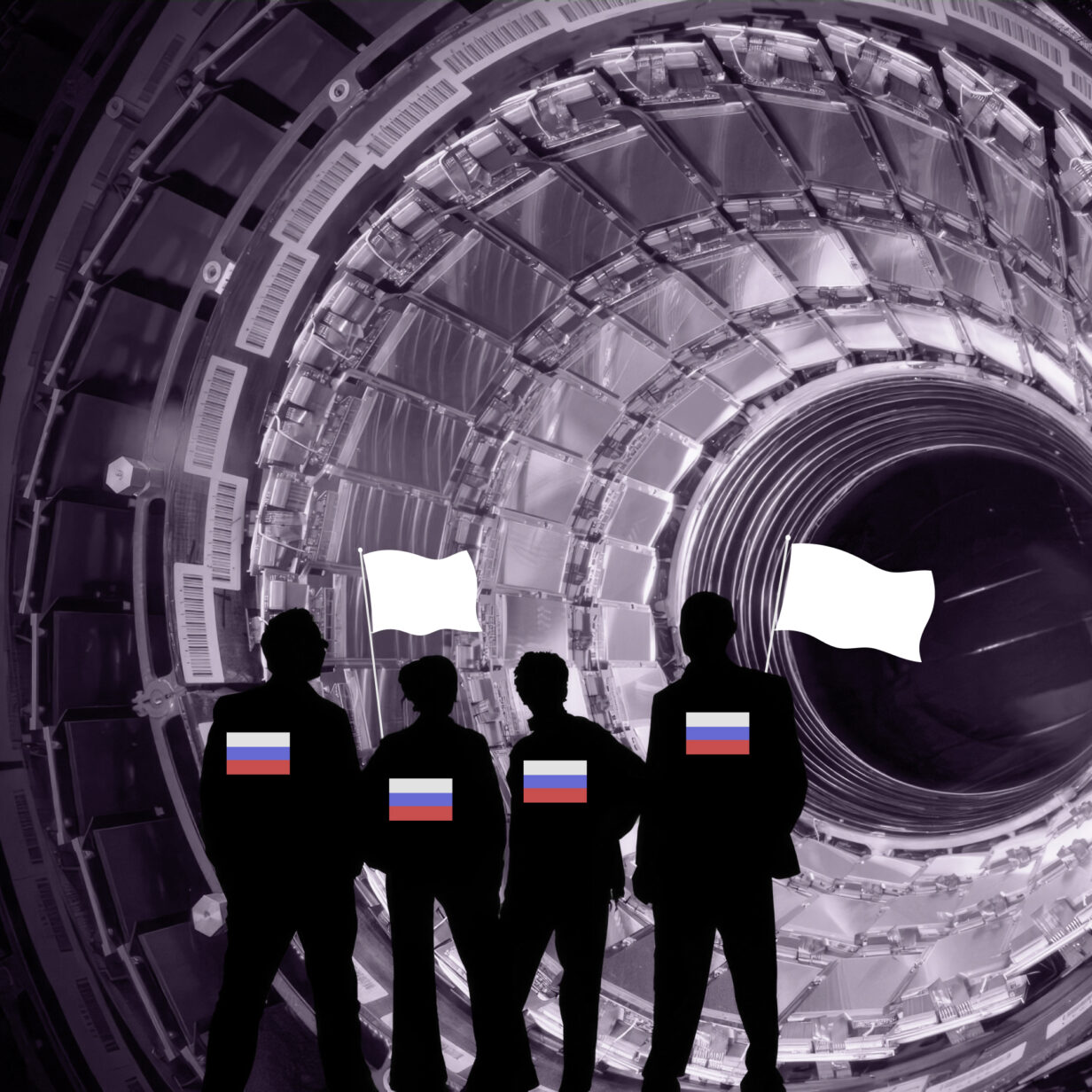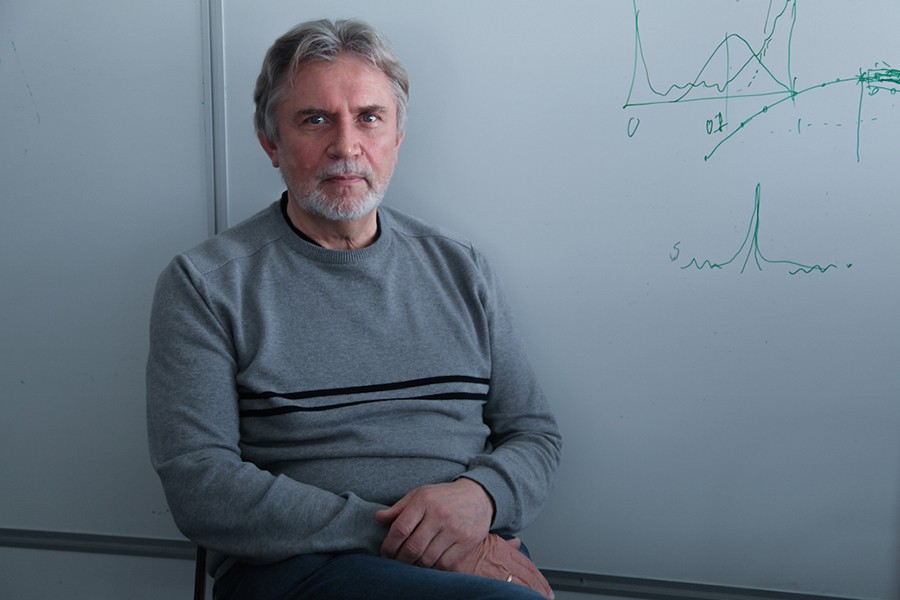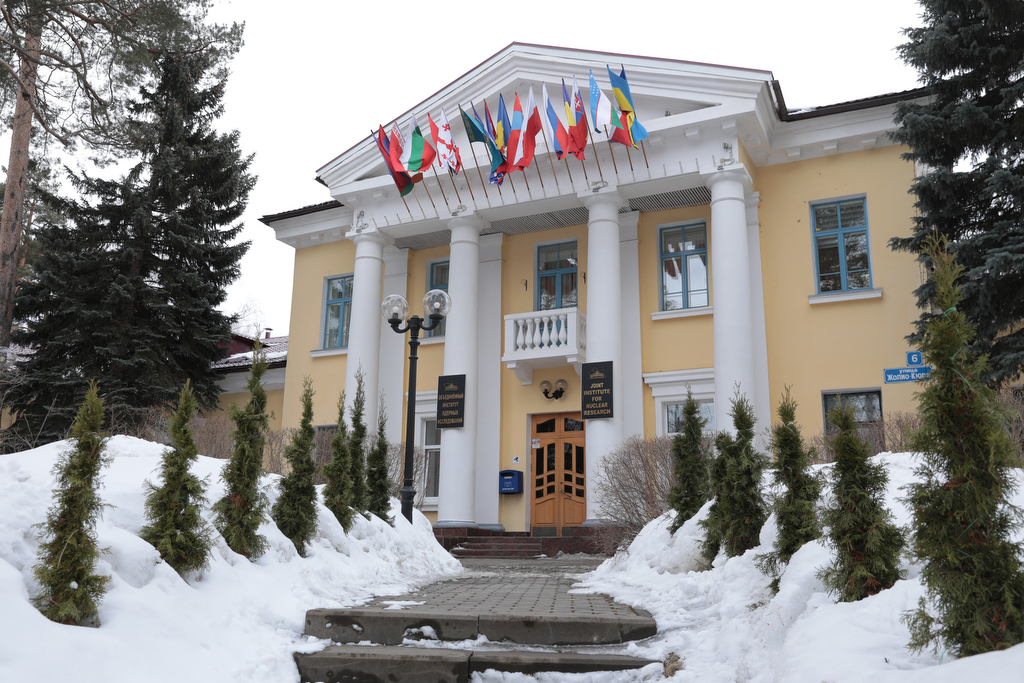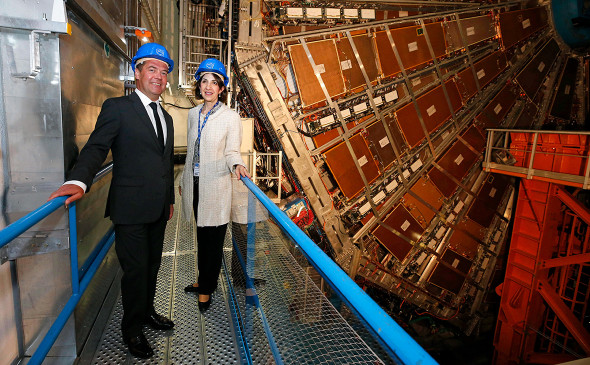
After the official statement of the European Organization for Nuclear Researchth (CERN) about the termination of cooperation with Russia reputable scientists around the world are looking for a solution with which Russian physicists could continue working at the Large Hadron Collider. The first of the proposed solutions is to organize “performances under a neutral flag” – to create an international laboratory, the affiliation of which will be available to scientists from Russia. However,most of the officials and administrators who make decisions on the fate of scientific cooperation are ready to completely end the more than 70-year history of joint work between domestic physicists and European Organization for Nuclear Research
T-invariant the reaction of officials of the Ministry of Education and Science and members of the CERN-Russia Committee in response to the final decision of the Council of the European Organization for Nuclear Research has become knownth (CERN) of December 15, 2023 on the “Russian” issue. On that day, the participating countries of the world’s largest scientific project finally voted to exclude Russia from the list of CERN partners and to end work at the Large Hadron Collider by scientists with affiliations in Russian research institutes and universities. Three days later, the Russians received a letter (a copy of it is at T-invariant’s disposal), which said, in part:
At its 214th session, held on December 15, the CERN Council decided to terminate CERN’s international cooperation agreements with the Russian Federation upon expiration in November 2024 of the year. We understand that the impact of this decision on some of you as employees and members of your families may be significant. User Office is still available to you for support. <…> We would like to inform you of the administrative consequences of this decision: if your cooperation agreement with CERN expires after November 30, 2024, it will automatically terminate on that date.
This decision threatened not only the fate of specific people whose lives and work were connected with CERN, but also the development of all high-energy physics in Russia. And if adult employees urgently change affiliations and look for new jobs, then for students from Russia who also participated in the experiments, the road to CERN is now closed. “If we talk about high-energy physics, then subjectively it seems that a third of young people have left,” noted on this occasion, a member of the LHCb collaboration at the Large Hadron Collider, Fedor Ratnikov.
“The reaction of the majority of Russian leaders at various levels, including representatives of the Ministry of Education and Science, is quite adequate. They don’t slam doors and try to minimize the negative impact of such a decision on the science we do,” Anatoly Romanyuk, head of one of the scientific groups at the ATLAS particle detector (part of the LHC), who has been regularly working at CERN for more than 30 years and is familiar with details of the latest meetings of domestic members of the CERN-Russia Committee.
The committee itself is in a bilateral format was officially assembled last time back in 2021, that is, before the full-scale invasion of Russia to Ukraine.
“To complete this year’s activities, Russia has allocated only a quarter of the usual amount of funding for our work at CERN, and, unfortunately, even here there are problems transferring money to CERN related to sanctions ”, notes Anatoly Romanyuk.

Anatoly Romanyuk. Photo: Physics of Elementary Particles. Department No. 40
The curators of work on the Russian side at CERN are now discussing two options for reacting to CERN’s final decision.
“Some (and the majority) believe that continuing work with CERN has no foreseeable future and it is necessary to end the relationship and switch to other major projects both within the country and, for example, for the CEPC project in China (competitor FCC in Europe) or project ILC plus also collider KEKB in Japan. But there are also those who urge us to find a way to continue the work of Russian physicists at CERN, for example, under the affiliation of a neutral organization,” says Anatoly Romanyuk.
Suchneutral structure can be “Internationalayalaboratory of elementary particle physics.” The concept under discussion is available to the editorial staff of T-invariant.
“Collaboration between scientists within CERN has developed successfully in the past, even during the most tense moments of the Cold War. Considering that the future belongs to the younger generations, every effort must be made to give them the opportunity to establish and maintain open contacts and direct cultural ties with the global scientific community,in particular , using CERN as an international laboratory uniting scientists from almost 100 countries regardless of their political, religious and cultural differences,” the concept says.
The initiators propose to the CERN Council “to maintain cooperation in CERN projects at least at the level of individuals and groups.”
“It is assumed that representative offices of the laboratory can be opened in several jurisdictions of friendly countries, such as Armenia, UAE, Turkey, South Africa, etc., on the basis of universities that are not limited in relations with CERN and other participating institutes. One of the options could also be the Joint Institute for Nuclear Research (JINR) in Dubna,” the authors of the concept believe.
A number of large international public organizations uniting physicists, as well as a number of current and former top managers of CERN, are going to petition the CERN council for the idea of a neutral laboratory, with the help of which Russian physicists could continue to work at CERN.
There are physicists who believe that JINR should become such an organization “under a neutral flag”. “The idea of such a neutral international laboratory has indeed been discussed for a long time. But, in my opinion, there is no point in creating a proxy organization from scratch, it is better to negotiate so that JINR becomes such a solution,” says physicist Andrei Rostovtsev, a member of the Science4Peace association of scientists, which is now actively searching for a solution for the further participation of Russian physicists at CERN (more on this later).
More details on the position of physicist Andrei Rostovtsev and his colleague in the Dissernet community Andrei Zayakin on the “Russian” problem at CERN listen to the latest podcast “Invasion”, which was released in all accounts T-invariant.
Details
The LHC has four main detectors – ATLAS, CMS, ALICE and LHCb.
Collaboration with CERN began back in the 1950s. The first agreement was signed in 1967. After the collapse of the Soviet Union, cooperation between Russia and CERN was regulated by bilateral agreement signed on October 30, 1993, as well as protocols thereto. Russian scientists and engineers made significant contributions to the design and construction of the Large Hadron Collider.
Russia had observer status at CERN. This meant that the Russian Federation did not pay contributions to the organization’s budget, could not vote on the CERN council, but could participate in direct scientific work on the detectors with money and equipment. In 2012, the Russian side applied for associate membership – this status gave the opportunity to attend Council meetings without the right to a casting vote, the right to participate in tenders for the supply of equipment, but it was necessary to pay fees – about ten million euros per year. In March 2018, this application was withdrawn, and the issue of full membership of the Russian Federation in the organization was also discussed. In 2019 to Geneva for the collider Dmitry Medvedev (then Prime Minister of the Russian Federation) came. The cost of the issue was mentioned – $ 115 million . But the decision was never made. In 2019, they signed an updated agreement for a period of 5 years, which they are not planning to renew right now. Now about 1000 Russian students, graduate students, scientists and programmers come to CERN throughout the year and about 200 people work permanently.
The cooperation between CERN and Belarus will end a little earlier – from June 27, 2024.
Dmitry Medvedev and Director General of the European Center for Nuclear Research Fabiola Gianotti (Photo: Dmitry Astakhov / TASS)
When the guns talk, the collider is not silent
The decision to completely exclude Russia from CERN is not unexpected. The organization quickly responded to the big war unleashed by the Kremlin. Already at the beginning of March 2022, it became known that the CERN Council sharply condemned the actions of Russian troops on the territory of Ukraine, decided to freeze Russia’s status in the organization indefinitely and prohibited the start of any new projects with the Russian government and Russian institutions.
At the same time, hundreds of Russian physicists working in collaborations with CERN signed open letter. In the letter, they protested against the actions of the Russian leadership and stood in solidarity with a large open letter from scientists against the war (more than 8500 signatures).
The CERN Council in its March resolution promised to promote initiatives aimed at supporting Ukrainian researchers and Ukrainian projects in the field of high energy physics and to comply with the regime of international sanctions imposed on Russia. At the same time, the organization’s leadership expressed support for representatives of the Russian scientific community who protested against the war.
Then events developed even more rapidly. Two weeks later, at the end of March, CERN released a new statement, in which it further tightened the rules for working with Russia and Belarus. He also announced a complete cessation of cooperation with Dubna. CERN scientists were prohibited from joining all scientific councils and committees of the Joint Institute for Nuclear Research (JINR) and vice versa; All conferences and seminars organized by JINR and CERN were cancelled. In addition, JINR lost its observer status at CERN, and the organization canceled its observer status at JINR.
Details
JINR is an international intergovernmental research organization, the founders of which are 13 JINR Member States.

Joint Institute for Nuclear Research (JINR) in Dubna. Photo: official website
CERN finally announced a change in status from “freeze” to a complete stop of cooperation with Russia in June 2022.
“Despite the March and June statements of the leadership, not everyone at CERN was unequivocally against the complete cessation of relations with Russian scientists. I spoke with people from the CERN Council, with Italian and French leading physicists, they were against such a tough political decision. I still remember the times when CERN was guided by the logic of science, not politics. Everything changed when representatives of the Ministries of Foreign Affairs of the participating countries began to be included in the CERN council. Now the final decisions were made by politicians, for example, they took it very seriously letter roRussian rectors in support of the special operation. Although it is clear how these signatures were collected and what they are worth,” says Anatoly Romanyuk.
There was no unanimous decision on the Russian issue throughout the two war years. “Even at the final vote on December 15, 2023, two-thirds of the Council members voted for termination of cooperation with Russia,” assures Anatoly Romanyuk.
By data from the publication THE GENEVA Observer, at least representatives of Hungary, Israel, Italy, Serbia, Slovakia and Switzerland abstained.
At the same time, another T-invariant source claims that representatives of several countries that are permanent participants of CERN said that they would leave the organization if CERN agreed to any cooperation with Russia or its institutions, including JINR.
Today, there appears to be a broad consensus emerging in the scientific community that the Council decision of 15 December may have marked the end of the CERN era and made international scientific cooperation on large-scale projects in the field much more difficult. particle physics. “CERN was created as a force for peace. It was thrown away. Peaceful scientific collaboration may now be ended for political reasons,” John Ellis, a leading particle physicist and professor at King’s College London who has worked at CERN for 38 years, told THE GENEVA Observer.
“The decision is political, it violates the general fabric of science, which is international in the modern world. Everything has changed a lot since the 1950s, when CERN emerged after the great war. I know that the debate was very heated, the decision was made by a small margin. Among the physicists themselves working at CERN, in this large company of scientists from all over the world, there is a desire to mitigate this situation. A community has emerged Science4Peace, where I am also included, we are carrying out this work now,” says Andrey Rostovtsev in the “Invasion” podcast T-invariant.

Andrey Rostovtsev. Photo: Pravmir
“War is a disaster, but boycotts and sanctions, scientific or otherwise, do not work.” Has maintained this position since the beginning of this story. Science4Peace is an initiative created by scientists in response to restrictions on scientific cooperation imposed due to the war in Ukraine. On May 1, 2022, Science4Peace published a petition which states that “the sanctions imposed against scientists are counterproductive, they do not put pressure on the Russian government, but they make it difficult and in some cases make communication between scientists impossible.”
“These sanctions will not help achieve a ceasefire or resolve the conflict. On the contrary, these measures isolate Russian and Belarusian scientists and exclude them from international discussions both in science and in other areas,” the petition says.
In his latest at the moment statement dated February 4, 2024 Science4Peace initiative names the consequences of the decision CERN is “epoch-making”. “The decision of the CERN Council to cease further cooperation marks another significant failure of diplomacy – now science diplomacy,” the authors write.
It was not possible to obtain official comments from the Russian part of the CERN-Russia Committee.
